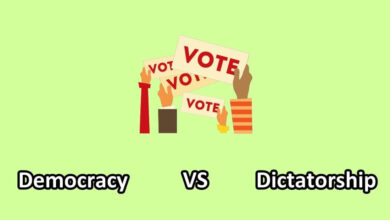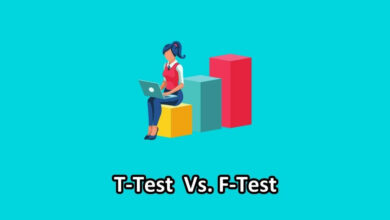In our ever-evolving world, where right and wrong can blur, understanding the distinctions between ethics and values is crucial. Are they two sides of the same coin, or do they stand as opposing forces in our quest for moral guidance?
In this blog, we’ll unravel the complexities of ethics and values, shedding light on their unique roles in shaping our decisions, actions, and the society we live in. Join us as we delve into real-life scenarios, explore ethical dilemmas, and uncover how our personal values can clash with societal norms. Let’s embark on this exploration together, as we navigate the intriguing terrain of “Ethics vs. Values” and find the path to moral clarity.
Ethics Vs Values (Comparison Table)
| Ethics | Values |
|---|---|
| Ethics refers to the systematic study of moral principles and standards. | Values are an individual’s deeply ingrained principles used to judge right and wrong. |
| Ethics are moral principles widely accepted by society, less influenced by personal beliefs. | Values are shaped by individual experiences and convictions, varying from person to person. |
| Ethics have a broad application in various contexts, including professional and societal settings. | Values primarily guide personal choices and behaviors, though they can also influence broader decisions. |
| It provides a systematic framework for evaluating and making moral decisions. | It acts as an internal compass that helps individuals make choices aligned with their deeply held beliefs. |
| Ethics often involve universally accepted principles and can be consistent across cultures. | Values may vary significantly from person to person and culture to culture. |
| Ethics can be influenced by philosophical and cultural factors. | Values are heavily influenced by an individual’s life experiences cultural upbringing, and background. |
| Ethics determines what is considered morally acceptable in a broader societal context. | Values determine what is personally important and meaningful to an individual. |
Defining Ethics
Ethics, often referred to as moral philosophy, is the study of what is right and wrong, good and bad, and the principles and values that guide human behavior. It provides a framework for individuals and societies to make moral judgments and decisions.
Ethics explores questions like: What is the right thing to do? What are our responsibilities to others? How should we treat one another? It is a discipline that seeks to understand and establish the principles that govern human conduct.
Defining Values
Values are deeply held beliefs and principles that guide an individual’s attitudes, behaviors, and decisions. They are the core convictions that shape a person’s character and provide a sense of purpose and meaning in life.
Values can encompass a wide range of aspects, including honesty, integrity, respect, fairness, and compassion. They serve as a moral compass, influencing how individuals prioritize and make choices in their personal and professional lives.
Significance of Ethics and Values in Our Lives
Ethics and values play a fundamental role in shaping the way we interact with the world and with others. They provide a sense of direction and purpose in life.
In our personal lives, ethics, and values guide our behavior and help us distinguish between right and wrong. They contribute to our identity and shape our relationships. For example, valuing honesty and integrity can lead to trust and respect in personal relationships.
In the professional sphere, ethics and values are crucial for maintaining integrity and trust in the workplace. Employees and employers who uphold ethical standards are more likely to build successful careers and organizations. Ethical conduct also helps in avoiding legal issues and reputation damage.
Key Differences Between Ethics and Values
- Origin and Subjectivity: Ethics are universal principles of behavior widely accepted by society. They are objective and less influenced by personal beliefs. On the other hand, values are personal and subjective beliefs, shaped by individual experiences and convictions. They vary from person to person.
- Scope and Application: Ethics have a broad application in various contexts, including professional and societal settings. On the other hand, values primarily guide personal choices and behaviors, though they can also influence broader decisions.
- Consistency: Ethics often involve universally accepted principles and can be consistent across cultures, whereas values may vary significantly from person to person and culture to culture.
- Influence By: Ethics can be influenced by philosophical and cultural factors, whereas values are often shaped by personal experiences, upbringing, and cultural background.
- Difference Between Universality and Diversity
- Difference Between Democracy and Dictatorship
- Difference Between Imply and Infer
Examples to Illustrate These Differences
To illustrate the differences between ethics and values, consider a scenario where a company faces a decision regarding environmental responsibility.
Ethics would involve assessing the broader moral implications of the decision, such as its impact on the environment, society, and future generations. This assessment would be based on ethical principles like environmental sustainability and social responsibility.
Values, on the other hand, would come into play when individuals within the company have personal convictions related to the environment. For example, an employee who values environmental conservation on a personal level may push for more eco-friendly practices within the company.
Ethics vs. Values in Business
In the corporate world, ethics and values are critical components of organizational culture and success. Here, we will explore their roles in business ethics, examining how they influence decision-making, reputation, and long-term sustainability.
What is the Role of Ethics and Values in Business?
Ethics and values are crucial in the business world as they guide decision-making and behavior. They ensure that businesses operate responsibly and ethically, which is not only beneficial for society but also for long-term success.
Ethical business practices, such as fair treatment of employees and honesty in transactions, build trust among customers and partners. This trust is invaluable for brand reputation and customer loyalty.
Values, when aligned with the company’s mission and culture, can motivate employees and enhance teamwork. For instance, a company that values innovation is likely to foster a culture of creativity and problem-solving.
How They Influence Decision-Making
Ethics and values significantly influence decision-making in business. Ethical considerations help businesses navigate complex choices, ensuring that decisions are morally sound and legally compliant.
Values guide leaders and employees in making choices that align with the company’s core beliefs and principles. For instance, a company that values diversity may prioritize inclusive hiring practices.
Ethical Dilemmas: When Values Clash
Life is replete with situations where personal values clash with ethical responsibilities. Through real-life scenarios, we will examine the challenges individuals face when navigating these dilemmas.
Real-Life Scenarios Where Personal Values Conflict with Ethical Choices
Consider a real-life scenario where an employee values personal privacy but faces a situation where their employer requests access to their personal social media accounts for security reasons. This clash between the value of privacy and the ethical responsibility to ensure workplace security creates a dilemma.
The Challenges Individuals Face in Such Situations
In such situations, individuals must navigate the tension between their personal values and ethical obligations. They may need to weigh the importance of their values against the potential harm that could result from not adhering to ethical standards. Finding a balance often requires thoughtful consideration and communication with relevant parties.
The Role of Culture and Society
How Culture and Societal Norms Shape Our Ethical and Value Systems
Culture and societal norms play a significant role in shaping our ethical and value systems. They influence what is considered acceptable or taboo in a given society. For example, in some cultures, punctuality is highly valued, while in others, a more relaxed approach to time is accepted.
Discuss Cultural Relativism and Its Impact on Moral Clarity
Cultural relativism is the idea that ethical principles are relative to a particular culture or society. It can impact moral clarity by making it challenging to determine universal ethical standards. What is considered ethical in one culture may be unethical in another. This highlights the importance of cross-cultural understanding in ethical decision-making.
Ethical Frameworks and Philosophies
Introduction to Prominent Ethical Frameworks
Ethical frameworks provide structured approaches to ethical decision-making. Prominent frameworks include utilitarianism, which focuses on maximizing overall happiness, deontology, which emphasizes duty and rules, and virtue ethics, which centers on developing virtuous character traits.
How These Frameworks Relate to Personal Values
Individuals often align with one or more ethical frameworks based on their personal values. For instance, someone who values honesty may find deontology appealing due to its emphasis on moral rules.
The Strengths and Weaknesses of Each Approach
Each ethical framework has its strengths and weaknesses. Utilitarianism can prioritize majority happiness at the expense of minority rights, while deontology can be rigid and may not provide clear guidance in complex situations. Virtue ethics may lack specific rules for decision-making.
Conclusion
Ethics and values are foundational to human life, influencing our actions, decisions, and interactions. Understanding the distinctions between ethics and values, their significance, and their practical applications empowers individuals and organizations to make morally sound choices and contribute positively to society.
In an ever-evolving world, the principles of ethics and values remain essential guides in navigating the complexities of our rapidly changing landscape. They provide a steady moral compass that helps individuals and institutions weather the storms of uncertainty, technological advancements, and shifting cultural norms.



